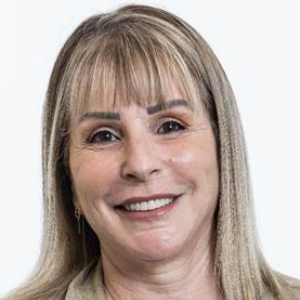Title : Telemedicine use - characteristics, attitudes, knowledge, barriers, patient reported experience and outcome measures (PREMs & PROMs) among a variety of social groups in Israel
Abstract:
Scientific Background - Online Health Services (OHS) have emerged in response to healthcare challenges and provide a way to streamline the healthcare system. Despite their numerous advantages, various studies have presented differing findings regarding their efficacy in populations with different sociodemographic characteristics.
Research Objectives - To describe OHS use and its characteristics; to examine knowledge, attitudes, barriers, and usage patterns among various groups in Israel; to explore the relationship between OHS consumption and patient-reported outcome and experience measurements (PROMs and PREMs); and to present a predictive model for OHS consumption.
Method - A cross-sectional study was conducted among Jewish and Arab populations with a random representative sample taken according to gender, ethnicity, age, and religious affiliation. Sampling was stratified by ethnicity and geographical regions. An online questionnaire was administered through iPanel’s records.
Key Findings - The sample comprised 2001 participants with an average age of 47, half of them being women. Participants were more familiar with low-level technology and used it more frequently, and most reported the absence of technological or emotional barriers. Perceived efficacy of OHS was high, but some participants preferred face-to-face treatment. Predictors of familiarity and use of high-level OHS included being male, Arab, insured by the Clalit HMO, and having familiarity with OHS, high perceived health literacy, efficacy and safety.
Conclusions - Online treatment and face-to-face treatment are complementary services; High-level OHS and low-level OHS are two distinct types of services; The absence of technological barriers makes it possible to leverage and expand the provision of OHS in Israel.
Implications and Recommendations for Policy Makers - Efforts should be directed toward improving online health literacy, focusing on using high-level technology; The elderly population’s capabilities and needs should be mapped and personalized service frameworks should be established; Health perception measurements should be used to predict OHS use.
Audience Take Away:
- Explain how the audience will be able to use what they learn –
- How will this help the audience in their job? Is this research that other faculty could use to expand their research or teaching? Does this provide a practical solution to a problem that could simplify or make a designer’s job more efficient? Will it improve the accuracy of a design, or provide new information to assist in a design problem?
Other Benefits:
- This talk is focused on the challenges of providing online health care services in light of focusing on different population subgroups and their preferences of OHS consumption. The study findings are especially important in light of the Covid-19 era, in which online health services were used and the feeling was that they could be a substitute for face-to-face health services.
- The study add new concepts to understand OHS such as the need to distinguish between high- level OHS and low -level OHS. Other concepts are related to efficacy and safety of online treatment, online health literacy, and preference for face-to-face treatment, and the reported measures by the patients (PREM and Prom).
- Nurses will recognize characteristics and preferences of population's subgroups to better determine the type of service suitable for each group.
- The study rigorous methodology can serve a basis for other nurse researchers interested in this topic, or nurses involved in education.
- The study findings are important for clinicians, nurse managers and nurses involved policy making.



